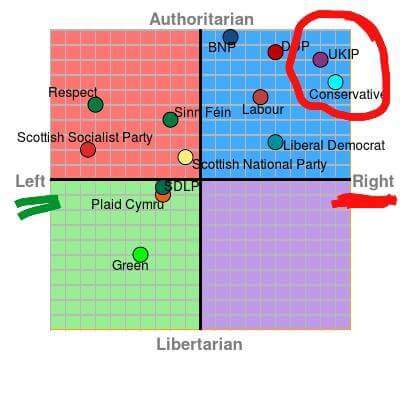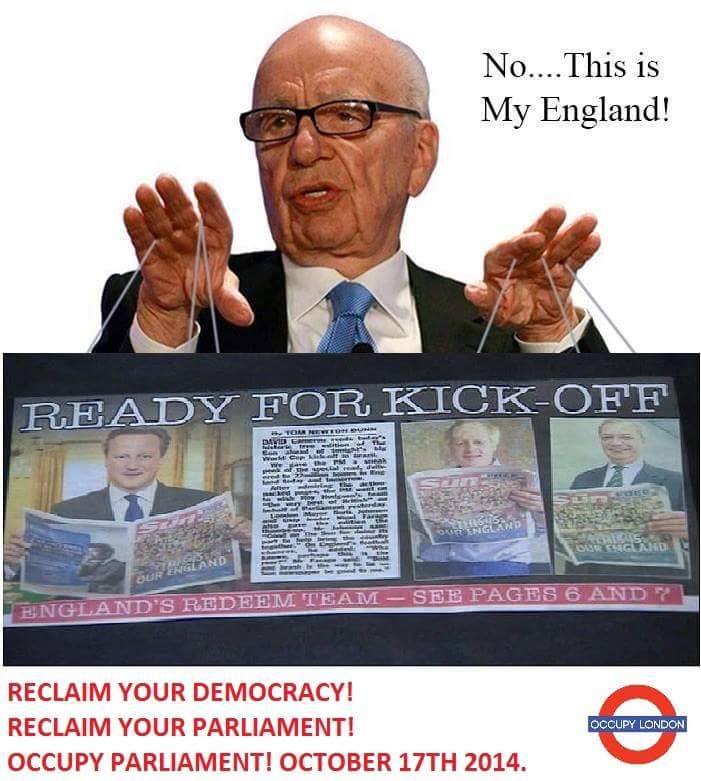Unpacking the Efford Bill Con Trick, by Dr. Lucy Reynolds – Livestream

Unpacking the Efford Bill Con Trick:
Crossposted from The Efford Bill – A Trojan Horse?
Research fellow and National Health Action Party member Dr Lucy Reynolds provides her analysis of the controversial Efford Bill.
Summary:
We need to unravel its competition law mechanisms to understand how passage of the Efford will allow monopoly takeover of NHS commissioning by a single insurance company while retaining the use of competition law to drag NHS hospitals into the Health Act 2009 privatisation net
16 November 2014
Introduction
The much anticipated “Efford Bill” has now been released and will have its first debate on 21 November. The usual suspects are pressing us to support it. That would be a grave error on our part.
It seems to have been based on Lord Owen’s bill, incorporating some key elements from that to reassure NHS defenders, then adding competition law games to reverse these headline gains and to set up the possibility of having a monopoly private provider take over some element of the NHS system. The most likely candidate is the commissioning support function, which controls the spending of the NHS budget and has access to confidential medical records, a function therefore highly attractive to the health insurers after whose internal administration it was modelled.
The Efford Bill contains some lovely buzzwords (“social solidarity” is name checked, for instance, for socialist appeal) but they do a poor job of concealing its true raison d’être, some clever competition word games to move the NHS onward to the City &Wall Street’s planned end state of a US-style healthcare industry privately-run, overseen by the health insurers, and subsidised by the budget of the former NHS. In short, it’s not at all what NHS supporters had been hoping for, but another betrayal.
Taking the relevant elements one by one, but not in order:
TTIP clause 14
The TTIP element appears carefully worded to sidestep the problem. Here’s the truth of the matter, from trade and competition law expert John Hilary in the British Medical Journal:
“The European Commission has confirmed that health services are on the table, and a leaked copy of the EU’s liberalisation offer has revealed its full ambition. Not only hospital services but medical (including midwifery and physiotherapy) and dental services are to be opened up to competition under TTIP. Individual EU member states may enter reservations to protect specific sectors, but the only one entered by the UK government is for ambulance services.”
If the intention is to put in UK reservations to protect more of the NHS than just the ambulance services, why doesn’t the bill specify that rather than using this suspiciously specific legalistic language in 14(1)’s note:
“No ratification by a Minister of the Crown of the proposed Transatlantic Trade and Investment Partnership Treaty shall cause any legally enforceable procurement or competition obligations to be imposed on any NHS body entering into any arrangement for the provision of health services in any part of the health service”.
Since it’s not ratification that causes that imposition anyway, this guarantee’s meaningless.
“Removal of competition law” Clause 10 & its restoration in Clause 1 & elsewhere
Part 3 of the Bill contains the much awaited removal of competition law. It’s not what it might at first appear, and not at all what we were promised.
The reduction of Monitor’s functions by Part 3 will change nothing for the NHS: under EU law, its abolition leads to its competition law regulation functions reverting to the Office of Fair Trading.
The purpose of the competition law rules is to break open access to public funds for commercial ventures: they are penned by lawyers paid by big business, thus the content benefits big business at the expense of the rest of us. They are enforced against populations by the population’s elected representatives, through various means of suasion or duress: see senior privatisation insider Joseph Stigletz’s comments on the methods of accessing privatisation opportunities through “influencing” politicians here: http://www.gregpalast.com/sell-the-lexus-burn-the-olive-treernglobalization-and-its-discontents/.
The Health and Social Care Act 2012’s s75 tie to EU competition law would be repealed by the passage of this Bill, but unfortunately the NHS’s competition law tether would simultaneously be restored in Clause 1, by declaring the NHS as a “service of general economic interest”, rather than as a “non-economic” non-marketised public service with no commercial involvement. “Social Services of General Interest” (“SSGIs “)
“may be of an economic or non-economic nature. SSGIs that are economic in nature are SGEIs.”
http://www.era-comm.eu/UNCRPD/kiosk/speakers_contributions/413DV08/Bovis_Presentation_1_EN.pdf
All national health services are defined as SSGIs. An SSGI is an SGEI if it is:
“established for the specific purpose of meeting needs in the general public interest not having an industrial or commercial character”, defined as:
intention to achieve profitability
pursuit of objectives through commercially motivated decisions
Source decisions: C-360/96, Gemeente Arnhem Gemeente Rheden v. BFI Holding BV &C-223/99, Agora Srl v Ente Autonomo Fiera Internazionale di Milano
Briefings on competition law concepts, including the concepts of “services of general interest”, “economic” or “non-economic”, are here:
http://www.europarl.europa.eu/aboutparliament/en/displayFtu.html?ftuId=FTU_3.2.1.html
http://eur-lex.europa.eu/legal-content/EN/ALL/?uri=CELEX:52007DC0725
The Efford Bill could have declared the NHS a non-economic service of general interest.
But it does not, it specifies the opposite, thus taking the NHS back into the EU procurement net. This restores the EU competition law links removed by excising s75: a con trick given the advance publicity for this bill as safeguarding the NHS by removing it from the competition law net.
“NHS and non-NHS contracts for all: the private monopolist access clauses
As well as the EU competition law remove & restore trick explained above, the concept of NHS contracts, not bound by competition law, and non-NHS contracts, bound by competition law because of the NHS’s SGEI status is key to this bill.
Clause 6’s new section 9(5) for the 2006 rules allows private providers to enter into “NHS contracts”, the nature of which is altered by later provisions 9(14-20).
These changes may be linked not only to the 2014 EU changes (see above), but also to this impending privatisation, which carries access to our confidential medical records:
http://www.england.nhs.uk/wp-content/uploads/2014/02/item4-board-0114.pdf
According to this, commissioning support units are to be privatised by 2016 by one of four methods:
“social enterprise, staff mutual, customer controlled social enterprise or joint venture”.
The first three will generally require external backing since substantial financial guarantees will be needed. These may well be available, for instance from private equity firms, but that involves effective loss of control and draining of funds. The intended partner for the fourth option, “joint venture” is the interesting question.
The insurance giants must surely be interested as the commissioning tasks of CCGs follow the insurance-based model of HMOs (health maintenance organizations; also known as “integrated care” or “accountable care organisations”), so this is an obvious match for them. It would be convenient for one of them if, say, through a high level connection within the NHS, it were able to take all of these joint venture contracts with CSUs outside the competition law ban on monopoly provision. The Efford Bill would make this possible within the overall competition law ban on monopolies which is being used to destroy the state monopoly on NHS provision, by using the new “NHS contract” arrangements to opt to exempt certain contractors.
“Enables continuation of hospital privatisation
Meanwhile the remainder of the competition law framework remains in place to allow commercial contracting organisations to rob NHS hospitals of the money they need to pay their specialist teams whose work is being taken over, along with the contribution to hospital overheads from these lost services, thus taking them toward privatisation under The Special Administration created by the Health Act 2009.
“Conclusions
The Efford Bill would deploy competition law against the state monopoly provision of NHS services and yet enable a private monopoly takeover of commissioning support to escape competition law challenge. The City has had this attempt to have their cake and eat it issued by the Labour Party in a bid to trick socialists and other well-meaning people into supporting it despite its contents.
We must not fall for this: this Bill will doubtless pass into law, given its influential beneficiaries, but we should not be fooled into endorsing this fresh treachery.
Some Key Points:
- Labour have chosen to define the NHS as ‘Service of General Economic Interest’ when they could have defined it as a non-economic service of General Interest. As a SGEI the NHS is subject to competition law (which is developed in the private sector to the advantage of the private sector)
- Labour have removed section 75 but sneaky reintroduced NHS ties to it with this definition of the NHS
- The Secretary of State is still a promoter not a provider of services, a central issue with the 2012 Act
- The Amendment allows for corporate monopoly provision – allows for private providers to take NHS contracts and then NHS contracts can be exempted from the competition law ban on monopoly provision. Likely to be used for CSUs, but probably not for our suffering NHS hospitals
- TTIP is not exempted since ratification is not the thing that gives obligations, the Health Act itself does that – this is very careful wording. (Ratification will quite possibly be by the EU anyway not member countries- currently under discussion as far as I’m aware).
- Under competition law choice of provider is deemed to be in the patient’s best interests, and this is what is meant by that term. Therefore new providers coming can be seen as a priority by default
- Secretary of State is given a lot of power. The current secretary of state is on record for saying he would like to see healthcare privatised
- Secretary of State can potentially allow Foundation Trusts to earn up to 100% of their income from private patients
- Bill preserves the right to charge
LINKS:
The Efford Bill: A Trojan Horse
Named and shamed: The government MPs profiting from NHS sell-off







